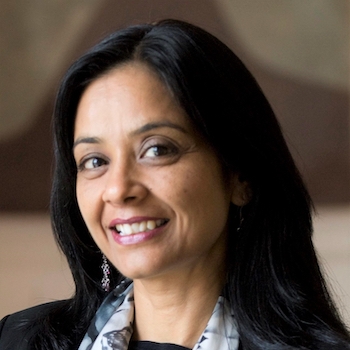
Health
The U.S. Can Learn a Lot from the Global South on Healthcare
Alongside the 77th UN General Assembly and just one year ahead of the next UN High-Level Meeting (UNHLM) on Universal Health Coverage, Devex hosted a series of conversations with global health experts from varied backgrounds. I was fortunate to be a part of a brief talk about global health equity and what it means to put people before profits and get leaders, decision-makers, and funders on board to truly help advance health equity around the globe.
As a lifelong human rights and health equity activist, I have steadfastly advocated for increased decision-making power to lie with leaders in the global south and to allow them to have a say in designing and implementing health programs and solutions, rather than being expected to adapt to the north’s prescriptive “solutions.” In the last three decades, however, the needle has not moved much on this. I believe it is one of the most urgently needed shifts if we are to achieve health equity.
People of color, folks with lived experience, and leaders from low- and middle-income countries (LMICs) must share in decision-making, have access to resources, and have an empowered seat at the table. Those who currently hold the power are unwilling to share it even a little, despite the fact they are filling the airwaves with their righteousness on equity. We need power sharing between the global north and south that is rooted in true partnership, allyship, and solidarity. We need to level the playing field so that everyone, whether from high-income countries (HICs) or LMICs, has an equal voice.
After reflecting on this and other UNGA events, it’s clearer than ever that we must take this a step further. Leaders from high-income countries know that there is much to be learned from those with lived experience. Thus, they should engage in co-learning and sharing best practices in a bi-directional manner.
When it comes to co-learning, there are lessons from across the globe than can be translated to other contexts, not only from HICs to LMICs, but also the other way around. For example, among LICs, Nepal, Rwanda, and Ethiopia are exemplars in reducing maternal mortality rates. We should interrogate what lessons can be learned from these countries and how we might be able to apply those elsewhere.
This is particularly applicable to the U.S. where healthcare is regarded as a privilege rather than a right. Why is the U.S. dominating the conversation when we have our own massive health disparities and inequities in our own backyard? Disparities in maternal mortality rates, for example, show that the U.S. has a long, long way to go to achieve health equity. According to the CDC, in 2020, the mortality rate of Black mothers was 2.9 times higher than that of white mothers. This cannot be acceptable anywhere, and it especially cannot be acceptable in one of the wealthiest nations that prides itself on being “the best.”
Let us ask ourselves, what if? What if the global north, particularly the U.S., took a step back and considered what lessons, best practices, and norms could be learned from other countries and cultures? What if, rather than staying wrapped up in American arrogance, we instead enacted some humility and asked other nations for their ideas on solving some of our problems such as racism, inadequate access to healthcare, and a very muddled public health system? There is so much to be learned from local contexts throughout Africa and Asia.
I truly believe we could transform health domestically and make real progress in decolonizing the global health arena if the U.S. led with a learning mindset rather than a teaching mindset and welcomed lessons from around the globe. While the U.S. may be the wealthiest country in the world, it is certainly not the healthiest, the happiest, nor the most equitable.
My final “what if”: What if a global health summit was convened by global south leaders and grounded in their norms and best practices? We could turn critical moments like UNGA and UNHLMs on their head and reorient them to be focused on shared, two-way learning.
If we are not willing to relinquish power and learn from others, I can’t help but ask, what is the point? Will yet another meeting filled with global leaders that is rooted in a colonial, paternalistic paradigm ever bring about the change we seek and we need?
I think not.

